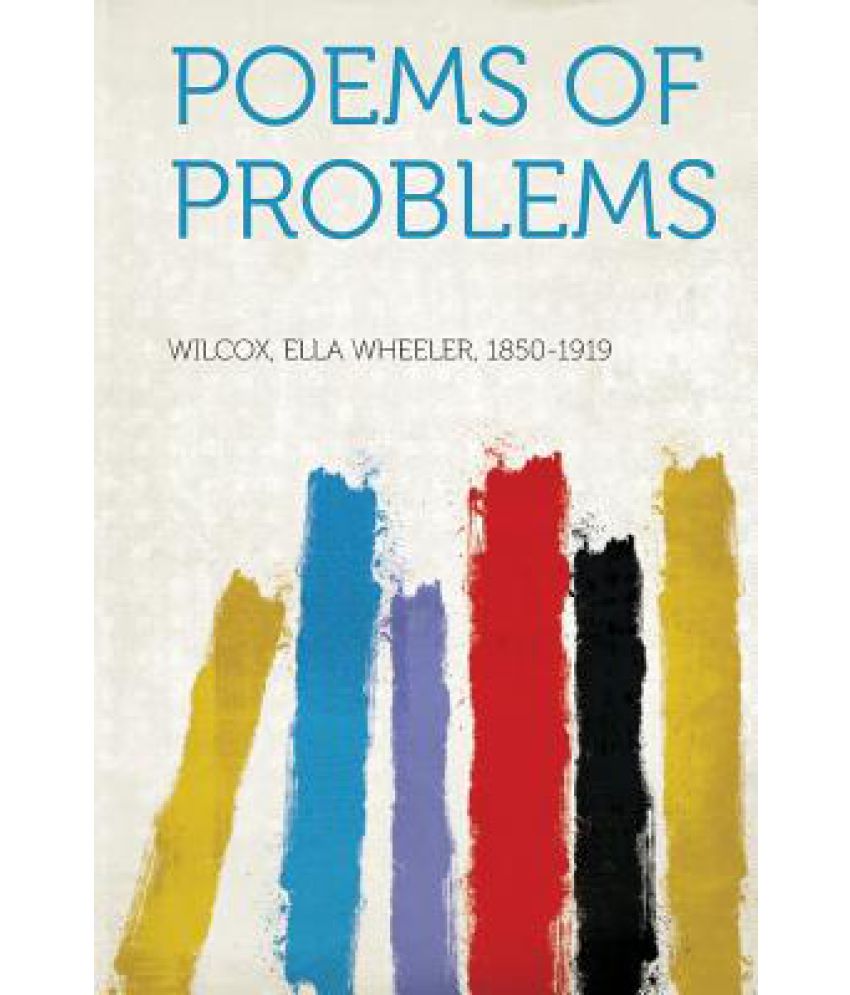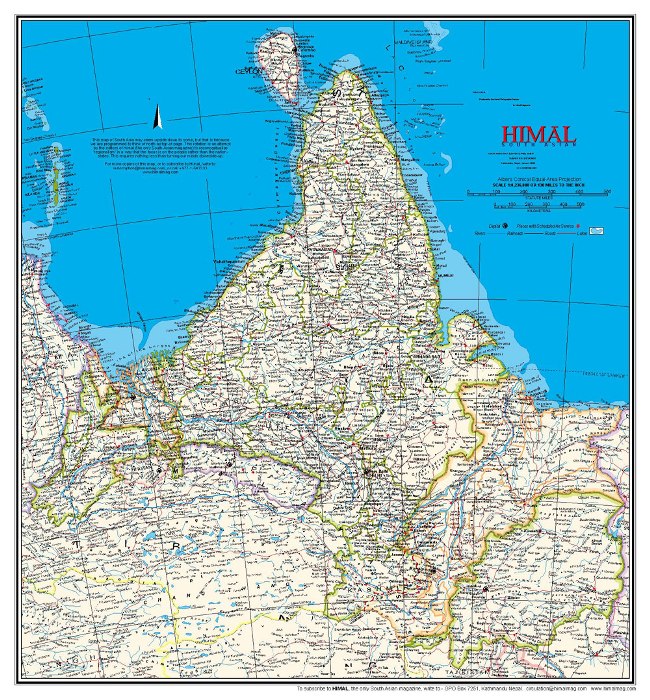Weltenangst. German somehow seems the right language to use in the present context and if this word is not already a part of the general vocabulary its high time it joined weltschmerz in describing the present global collective and perpetual sense of disquiet that does not seem to let up no matter where or when one looks, home or abroad. There is, in a way that has not earlier been quite as sharp, a distinct sense of the binary: us/them, right/left, right/wrong, in/out… One yearns for a world where the distinctions are recognizably blurred, where the blacks and whites give way to more shades of gray, where one can be more definitely unsure… when one is more willing to learn, and to change.
But since that is not to be, this post is about the need to speak out, inspired by a friend in New York from whom I learned of Ella Wheeler Wilcox‘ poem Protest, written over a century ago. In words that are truly timeless, and as pertinent today as when they were written, she says:

To sin by silence, when we should protest,
Makes cowards out of men. The human race
Has climbed on protest. Had no voice been raised
Against injustice, ignorance, and lust,
The inquisition yet would serve the law,
And guillotines decide our least disputes.
The few who dare, must speak and speak again
To right the wrongs of many.
The poem itself is longer, but this post is about the last two lines from the excerpt above, “The few who dare must speak and speak again”. And it is essential that those who do not speak should at the very least, support those who speak for us, for the values that we hold dear.
The heart of one of the crises we are presently facing, the breakdown of communication between the UGC and the rest of the universe on the matter of admissions to the Ph D, is a matter of perceptions. The UGC believes that a system that works in the US or elsewhere should work here. The here knows that the system that would work elsewhere does not work here, and the proof of the pudding is in its eating… To give complete weightage to an interview would tilt the balance in favour of the more articulate. Who also, typically, have had many of the advantages that make them more articulate in the first place… It is simply not true, as Mr Javadekar asserts, that “UGC regulations on MPhil and PhD admissions are as per the best practices of the world. It is being implemented healthily in all universities. The problem is there in one university.” His statements reflect an imperfect understanding of what the best academic practices are, and what that one university has been trying to do all these years.
To start with, the MPhil is a dying degree that should be allowed to become extinct as per the best practices of the world. And as for healthy implementation, the healthiest implementation of admission to the PhD is through the GRE Examination and applications, with no weightage at all for an oral examination… US university admissions committees know full well that their brightest graduate students (typically those from Asia) may not speak English well enough when they enter, so using performance in an oral entrance examination as a yardstick would serve them badly. They do what works well: Administer a good written examination and choose the best from the written scores. Of course they do it intelligently as well, using a combination of measures, but an interview is typically not one of them.
The UGC would best serve the University community by restricting itself to be a regulatory body as far as curricula are concerned (if at all) and stay away from prescribing admission rules and procedures. There are mechanisms aplenty to identify those who do not follow fair practices, and instead of finding routes of exempting them from fair play (such as declaring them to be INI‘s or Institutions of National Importance), it would serve us all better if the UGC would step in and insist on an even playing field for all.

To make the point further, the real responsibility is to ensure that all have an equal – or equitable – access to higher education. And one of the reasons for this is that the workforce, especially for skilled jobs, should have a balanced representation. Gender imbalance, for example, at the hiring stage reflects to a large extent the gender imbalance at earlier stages, that of admission to the qualifying degree for example. This is what has been termed the leaky pipeline in the context of gender representation in academic careers, but it is clear that the leaky pipeline idea operates just as well for all other groups, particularly those that have been excluded for one or the other reason.
The human race, Ella Wilcox asserts, has climbed on protest, and indeed we have. And protest we must, at these ill-argued, poorly considered fiats decreed by a body that has lost its relevance, the UGC which should also heed that students of all persuasions are now are opposing this move …
And not just this. It appears that the idea of a university is lost on the very group that needs it most, the government. In the abstract, the government of the people, by the people and for the people, should use those very people it has invested in to help it think through and devise a better future for the rest of the people. And arguably, that is one of the jobs our universities should undertake – take our country into its future. At least that is what, again in the abstract, each modern nation does. It is 2017 after all, and one of the blindingly obvious truths is that any government needs to use the best minds that it can muster, not just the best brawn. To disregard uncomfortable thought is more than just another mistake… Minds are terrible things to waste.
In the past three years, especially in higher education administration one has seen a relentless and uncompromising policy of choosing complaisant and available mediocrity for purposes of ideological resonance. This is a big mistake, one that we really cannot afford, not least because there is saner counsel available.
In a journal article that is available on the net, David Roy Smith of the Department of Biology, University of Western Ontario (DOI: 10.15252/embr.201643750) points out (passionately, one might add) that by democratically electing a person who openly mocks science and what one has learned from science (in the USA) puts both the basic sciences and our planet in danger. To quote from Smith’s article, “The situation is looking equally dire in other parts of the world, with nationalist, anti-immigration, and big business interests taking precedence over the preservation of our planet, its natural resources, and its ecosystems and species. To be an environmentalist, an academic, or a scientist of any kind in this polarized and pernicious political landscape risks being labeled an elitist, a liar, an ultra-leftist, and someone who is out of touch with the average person.”
That is something that those of us who teach at this one University are quite familiar with. Being at JNU is equated in the public (post-truth coloured!) eye as being ultra-leftist and all of the other things Smith says. We see this again and again: To be an academic of any kind in a polarized and pernicious landscape is a major risk. To whit, the following:
 We are taught – those of us who have learned of the physical world – that there is no special place in space from which one should derive all our coordinates. There really is no preferred sense of direction other than by convention and by legacy. For many years now, I have had the Himal South Asia magazine’s unusual map hanging in my office and have had innumerable discussions (of a non-political kind) about how it helps to change one’s point of view about our country, whats up south and down north and so on. I must say that learning to see this map every working day (and learning to refer to it in as normal a fashion as possible) has also been instructive in its own way, and it seems more natural now to draw a line from Kanyakumari down to Kashmir rather than the other way around. To have any sense of nationalism hinge on a completely arbitrary definition of up or down is to have a somewhat unhinged sense of nationalism.
We are taught – those of us who have learned of the physical world – that there is no special place in space from which one should derive all our coordinates. There really is no preferred sense of direction other than by convention and by legacy. For many years now, I have had the Himal South Asia magazine’s unusual map hanging in my office and have had innumerable discussions (of a non-political kind) about how it helps to change one’s point of view about our country, whats up south and down north and so on. I must say that learning to see this map every working day (and learning to refer to it in as normal a fashion as possible) has also been instructive in its own way, and it seems more natural now to draw a line from Kanyakumari down to Kashmir rather than the other way around. To have any sense of nationalism hinge on a completely arbitrary definition of up or down is to have a somewhat unhinged sense of nationalism.
 And speaking of ultra-leftist, another thing that hangs in my office is (what I consider) a superb poster, a telescopic image of Ché Guevara on the South American continent… something I picked up forty years ago when it was fresh and new, and another thing I have had to explain to any number of visitors who eventually all come down to “Ah… JNU, what else can one expect?” But this is just one poster, and it is more about the kind of aesthetic I cared about at some point in time rather than some ideology that is indelibly tattooed onto my soul.
And speaking of ultra-leftist, another thing that hangs in my office is (what I consider) a superb poster, a telescopic image of Ché Guevara on the South American continent… something I picked up forty years ago when it was fresh and new, and another thing I have had to explain to any number of visitors who eventually all come down to “Ah… JNU, what else can one expect?” But this is just one poster, and it is more about the kind of aesthetic I cared about at some point in time rather than some ideology that is indelibly tattooed onto my soul.
By discrediting academic values, one discredits a rational approach to governance that might see dissent and protests as part of a process that is, in the end, enriching because of its argumentative nature. And we must therefore support the few who speak and speak again.
